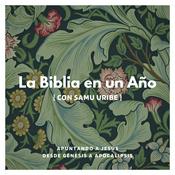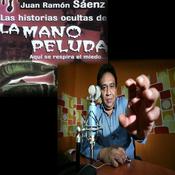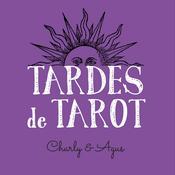47 episodios

Let’s Stop Judging
23/10/2025
Noah is one of three people in the Humash who are described as having "found favor" – מצא חן . The final pasuk of Parashat Bereshit says that Noah מצא חן בעיני ה' – "found favor in G-d's eyes." Later in the Book of Bereshit, we read that Yosef "found favor" in the eyes of his master, Potifar, for whom he worked as a slave ( וימצא יוסף חן בעיניו ). And in the Book of Shemot, Hashem tells Moshe Rabbenu that he "found favor" in His eyes ( כי מצאת חן בעיני ). Some commentaries added that, in fact, Yosef and Moshe are subtly mentioned in the beginning of Parashat Noah. The first pasuk of this parashah describes Noah with two adjectives – צדיק ("righteous") and תמים ("complete"). The word צדיק is associated with Yosef, who is often referred to as יוסף הצדיק , and the word תמים alludes to Moshe Rabbenu, who lived with perfect faith and devotion to Hashem. What is the connection between these three figures – Noah, Yosef and Moshe? The answer is that Yosef and Moshe together corrected Noah's mistake. Noah was, on the one hand, a great man, thanks to whom the world was literally saved, but at the same time, he was guilty of a serious flaw. This is indicated by a pasuk in Yeshayahu which refers to the flood as מי נח – "Noah's waters," suggesting that Noah was somehow to blame for the flood. The Zohar explains that Noah was informed long before the flood of Hashem's intention to destroy the earth – and he did nothing to stop it. He just heeded Hashem's command to build an ark for himself and his family. He had 120 years' notice – but he did not pray for his generation. He did not try to come to their defense, and plead to Hashem to spare them. And so he was, in a certain sense, responsible for the catastrophic flood. Yosef and Moshe exhibited the precise opposite quality. Yosef was betrayed by his brothers, who threw him into a pit to kill him, and then sold him as a slave to a foreign country. But Yosef did not seek revenge. His response was not to get back at them. Instead, he forgave them and even took care of them, providing them food during a severe famine. Yosef, the great צדיק , looked for the good instead of focusing on the bad. He continued loving his brothers despite what they did to him. This quality was continued by Moshe Rabbenu, who repeatedly prayed to Hashem's on behalf of Beneh Yisrael , even when they committed very serious sins. When Hashem decided to annihilate the nation after they worshipped the golden calf, Moshe did not just say "ok" like Noah did. Instead, he petitioned Hashem on their behalf, going so far as to demand that if Hashem destroys the people, he should be destroyed with them. He declared that if Hashem did not forgive the people, then מחני נא – he wanted to be "erased." The word מחני contains the same letters as the phrase מי נח – alluding to the fact that Moshe here corrected Noah's grave mistake. Instead of accepting Hashem's decree against the people of his time, Moshe interceded and prayed that they be saved. The difference between these two attitudes – that of Noah, and that of Yosef and Moshe – is the difference between judging and reserving judgment. Noah looked at the people of his generation, saw everything they did wrong, and decided they deserved to be punished. But Yosef and Moshe didn't rush to judge. Yosef's brothers, and Beneh Yisrael in Moshe's time, acted wrongly, but Yosef and Moshe didn't right away condemn them. They understood that there's so much more than what meets the eye. There's so much going on beneath the surface. No one can ever understand what other people are going through, what kind of struggles they're dealing with, what kind of challenges they face, what kind of pressure they're under. So many things contribute to the way a person acts – and nobody knows any of it. So we cannot judge. And when we don't judge, we wish people well and pray for their wellbeing. We don't get angry and look down at them – we do just the opposite. We look at them the way Yosef looked at his brothers and the way Moshe looked at the people. We look at them kindly and lovingly, even though they did or do things wrong. I cannot tell you how many times it happened that a couple who seemed so happy together, who seemed to have such a wonderful marriage, ended up getting divorced, or turned out to be having a very hard time in marriage. None of us know what other couples are going through. None of us know what kind of struggles other parents are having with their kids. None of us know all the details of our fellow's background and upbringing that could have caused his wrong behaviors. In short, none of us know practically anything about other people, about why they do what they do. Everyone, without exception, is struggling with something that we know absolutely nothing about. So let's stop judging, and start loving. Let's learn from Noah's mistake, and follow the examples set by Yosef and Moshe. Let's give people the benefit of the doubt, try hard to see all the good they do instead of focusing on the bad, and show them lots of love, friendship, and support.

Our Best Friend & Worst Enemy
16/10/2025
The Midrash tells us something fascinating about the snake that lured Adam and Havah to sin, encouraging Havah to eat fruit from the forbidden tree, after which she shared some of the fruit with Adam. This snake, the Midrash relates, was previously the greatest servant man ever had. It would go to distant lands, find beautiful gems, and bring them to Adam. Meaning, the same snake that enticed Adam and Havah to sin was also their greatest helper, who brought them precious diamonds! How do we explain these two sides of the snake – how on the one hand, it helped Adam and Havah, but on the other hand, it brought about their downfall? We might find the answer in another source that talks about snakes and diamonds. The Gemara, in Masechet Baba Batra (74b), tells the story of people traveling on a ship who saw a precious diamond surrounded by a snake. A diver brought the diamond onto the ship, but the snake then came to devour the entire ship. A bird flew down and bit the serpent's head. Then another snake came to devour the ship, but it, too, was killed. This repeated itself several times. The Malbim explains the symbolism of this story. We are created as "diamonds." We are created with a soul that is pure and pristine, with which we are to live a pure and pristine life. The problem is the "snake" that comes and ruins everything, by attacking our pure minds. And each time we manage to defeat the "snake," it comes again, and again. This "snake" is our imagination. As the Midrash tells us, the imagination is our most valuable asset, which brings us precious "gems." Nothing was ever built, created or innovated without imagination. Our imagination is what enables us to see what can be made, to see what we can become, to see what we can create, which is the first critical step toward achievement. Because of our imagination, we have dreams and ambitions that propel us forward and drive us to work and accomplish great things. But like the snake, our imagination can also bring about our downfall. Here's a simple example. We hear about a friend's son or daughter who is about to get engaged, and we feel overjoyed for that friend. But days and weeks go by, and we don't receive an invitation. Our imagination starts running wild. We start thinking that this friend is upset because of this or that, or just plain forgot about us, even though we made a point of inviting that friend to all our events. This invitation that doesn't arrive becomes like a serpent, a monster in our minds, that devours us and takes all the "diamonds," all our purity and goodness. We are consumed by resentment and hostility – all because of our imagination – for in truth, that young man or woman did not get engaged… The entire field of advertising is based on this realization of how the human imagination works. Colorful billboards put images in our minds that fester. We see a model wearing certain clothes – and we think of ourselves looking just as good. We see an advertisement for a blissful vacation spot – and we imagine ourselves experiencing that bliss. We see an advertisement for a car – and we imagine ourselves driving that car while our neighbors look on with envy. This is how the snake succeeded in luring Adam and Havah. It made them imagine unbridled bliss that they would experience if they ate the forbidden fruit. Most human vices work the same way. We are tempted not by the thing itself, but by our imagination, which deceives us into thinking that we will experience unparalleled joy and contentment if we do whatever it is we feel tempted to do. Our imagination can bring us precious diamonds – helping us rise to great heights and accomplish amazing things, but it can also ruin us by fooling us into looking for joy and satisfaction in the wrong places. The story of Adam and Havah teaches us that we need to keep our "snake" in check. Our imagination is both our best friend and our worst enemy. We must use it wisely – to dream, to aspire, to set bold and ambitious goals, to strive for greatness, but not to feel jealous, angry, embittered, or greedy. Let's imagine ourselves doing great things and becoming great – and then focus our attention on getting there.

Sukkot & Resisting Negativity
09/10/2025
Sukkot is called זמן שמחתנו – "the time of our joy," and indeed, the dominant theme of this holiday is simchah – joy. In the times of the Bet Ha'mikdash , a festive celebration called the שמחת בית השואבה was held each night of Sukkot in the courtyard of the Bet Ha'mikdash with music and dancing. Today, שמחה בית השואבה celebrations are held in many communities during Sukkot to commemorate the festivities in the Bet Ha'mikdash . There is a certain irony in the fact that specifically on this זמן שמחתנו , we are commanded to leave our comfortable homes and reside in a sukkah . The sukkah is a crude, temporary structure, and it is often cramped, chilly, and at times damp. How are these uncomfortable living quarters conducive to the experience of simchah ? The answer might be that this is precisely the point – to teach us that simchah does not depend on perfect circumstances. If we cannot experience joy under less-than-ideal conditions, then we will never experience simchah , because life is hardly ever ideal. And so specifically on זמן שמחתנו , on the holiday of the greatest joy, we leave our homes and reside in the sukkah . In the first pasuk of Tehillim, King David warns us about מושב ליצים – "the company of scoffers." The ליצים – scoffers – are exceedingly dangerous. They can destroy everything, and they can do it very quickly. These are the people who sit around the Shabbat table criticizing, mocking and ridiculing. It's usually the Rabbi, or the entire shul, or the school... They find fault in something, and then paint the whole thing as bad, igniting a flame of negativity that can spread like wildfire. ליצנות – mockery – is so destructive, and it is oh so easy. If I wanted to, I could in a split-second ruin the reputation of any rabbi, lay leader or institution in our community – including myself. I could find more than a couple of mistakes I made and then start talking about them to people to make myself look bad. And I could do this about anyone and anything. No person is perfect, and no institution is perfect. There is always what to complain about – and so many people love complaining, focusing on the flaws and making something or someone good look very bad. The scoffers appear to enjoy doing this, but, as the Sukkot celebration teaches us, joy is achieved by doing just the opposite. If we always focus on what's imperfect, we will be very unhappy. A happy life is a life when we can enjoy the sukkah , when we feel content and happy even with things that aren't perfect. A well-known story is told about a man who approached his Rabbi in anguish, asking him to speak to his son, who was going to marry a non-Jewish girl. Nothing the father said could convince the boy to change his mind, so he wanted the Rabbi to try. After meeting with the young man for an hour, the Rabbi soberly reported to the father that there was nothing he could do. "Sorry, but you made me useless," the Rabbi said. "You would sit around the table every Shabbat complaining about me, making fun of my speeches and the way I ran the shul. Your son has no respect for me." This is what negativity does. When we always focus on what's wrong, instead of appreciating and praising what's right, we make everything look miserable – and our children, understandably, are not going to want to have any part of it. Sukkot teaches us to find joy and satisfaction even in the imperfect, to direct our attention to all that is good about life and about the people around us, so we can live with genuine happiness under all circumstances, and thereby spread joy instead of negativity.

Yom Kippur- Know Your Worth
25/9/2025
I once witnessed the following scene in a busy shul in Brookyln with lots of minyanim . A young man approached someone to ask for tzedakah , explaining that he was getting married and needed help. The man handed him his credit card and told him to charge $52. Just then, someone else passed by, and this fellow asked him if he could help. The guy pulled out a $1 bill and handed it to him. He said, "Thank you." He then turned to the first fellow, who had given him his card, and said, "Look, I need a pair of nice shoes for the wedding. Maybe you can give a little more?" At first I was astonished. That second guy gave him $1 and got a "thank you," but the first, who offered him $52, got a request for more. How could that be? Very quickly, though, I understood why this happened. The "$1 guy" isn't going to do much more, but the "$52 guy" is capable of more. Someone who gave just one dollar cannot be expected to give anything beyond that, but someone who is able and willing to give $52 is likely to be able and willing to give even more than that. Sure enough, the first guy told the fellow to charge the card for an additional $50. I believe this is the mistake that so many of us make – especially this time of year – which hinders our growth, which stops us from becoming better. We all see ourselves as pretty good people, or even very good people – and we are right. We are good people. The problem is that although we give $52, we want to be left alone like the guy who gave $1. Specifically because we feel good about who we are – as we certainly should!!! – we feel that it's enough, that we don't need to try any harder. I imagine that if I had accomplished by the age of 20 all that Rav Ovadia Yosef zt"l accomplished by that age, I would feel pretty content. He was already an outstanding scholar who had mastered pretty much all of Torah. But he was not content. Not at all. He went on to not only write dozens of important books of halachah and answer untold numbers of halachic questions, but to devote himself tirelessly to the Jewish People, uplifting the entirety of Sephardic Jewry. He didn't think what he accomplished was enough – because he knew how much more he could do, and he was prepared to work as hard as was necessary to do it. The story is told of a man who bought his son an antique car for his college graduation. He told him to go find out how much the car was worth. The son came back and told his father that he brought the car to a dealership, and they said that it could hardly drive. It was worth at most $500. "Bring it to a pawn shop," the father instructed. The boy came back and reported that the guy at the pawn shop said it might be worth as much as $1000. The father then told his son to bring the car to a classic car club. The owners of the club were so excited by the car. They offered the young man $100,000 for it. "This is the lesson I want you to learn," the father said. "Some people will see how much value you have, other people won't. Always know just how valuable you are." Our problem is that we don't know our value. We see ourselves as $52 people, and so this is all we give. We need to understand that we have so much more to give, so much more to contribute, and so much more to achieve. We were not brought to this world to be just ok. We were brought here to be everything we are capable of being. There is also a second obstacle that stops many of us from growing. In the Book of Devarim (10:12), Moshe turns to the people and says to them, ועתה ישראל מה ה' אלוקיך שואל מעמך, כי אם ליראה את ה' אלוקיך – "And now, Israel, what does Hashem your G-d ask of you, other than that you fear Hashem your G-d…" The Midrash teaches that the word ועתה is a reference to teshuvah , repentance. This means that the key to teshuvah is ועתה – "now," a sense of urgency, the decision to change right now, without delaying any more. Even when we realize that we can and should do better, we often delay change. We figure we'll work on it tomorrow, or next week, or next year, or after this happens or that happens. The key to change is to get started now. Even if it's just one small step – we cannot wait. ועתה . We need to start today, right now, with everything going on, with all the issues we're struggling with – because right now, today, is the time to start. As we head into Rosh Hashanah, let's not wait. Let's challenge ourselves right now to be more than we are, to be everything that we can be – because this, and nothing less, is what we need to be.

The Sound of the Shofar
18/9/2025
The "highlight," so-to-speak, of the Rosh Hashanah prayers is the sounding of the shofar. In all, 100 sounds are blown over the course of the prayer service on Rosh Hashanah. What is the meaning and significance of this mitzvah , and what should we be thinking and feeling when we hear the shofar sound? To introduce the answer, let's consider an analogy to a very common situation: a mother comes home and sees a big mess in the house. She turns to her kids and asks them to spend a few minutes straightening up. She goes upstairs to change. When she comes back down, she sees the exact same mess, and the kids sitting in the exact same places where they were beforehand. They completely ignored her request, as though she did not even exist. This simple scenario helps us understand the concept of teshuvah , repentance, which is what the shofar blowing is all about. Whenever we sin, whenever we do something wrong, we are, in effect, ignoring Hashem. We're acting as though Hashem is not here with us, as though He is not part of our lives. After all, if we made Him part of our lives, if we were aware of His presence, then we would never have dared to do something He told us not to do. So each time we commit a sin, we are pushing Hashem out of our lives a little more. Teshuvah is the desire to bring Hashem back into our lives. It is a fierce, desperate longing to restore that relationship, the feeling that we cannot live without Him, that we need Him with us. This explains the Gemara's famous teaching that when a person performs teshuvah sincerely, his sins are not just erased, but transformed into merits. This is astonishing – our sins can become mitzvot if we perform teshuvah properly. We actually receive reward for the sins! How does this work? The answer is that when we perform teshuvah , the distance created by the sin makes us long for closeness with Hashem even more. We feel disconnected from Him, and this makes our yearning much stronger. It thus turns out that the sin led to a strengthening of the person's bond with Hashem, and so it is transformed into a mitzvah . The sound of the shofar has no words. It is a cry from the innermost depths of our souls. We are crying out for closeness with Hashem. We are yearning for a stronger relationship. When we hear the shofar sound, we should be thinking about how much we want and need Hashem in our lives, and how much we regret driving Him out of our lives through our mistaken behavior. This isn't about being sad; it's about longing and yearning, a desperate feeling of needing someone whom we had pushed away. If we can experience this longing on Rosh Hashanah, then we will transform our misdeeds into great sources of merit, and, no less importantly, we will put ourselves in a position to make this coming year much better than the previous year, a year when we avoid many of the mistakes we've made in the past, and when we truly live with Hashem each and every day.
Más podcasts de Religión y espiritualidad
Podcasts a la moda de Religión y espiritualidad
Acerca de Insight of the Week
Escucha Insight of the Week, Meditaciones Guiadas | Meditacion Mindfulness | Sí Medito y muchos más podcasts de todo el mundo con la aplicación de radio.net

Descarga la app gratuita: radio.net
- Añadir radios y podcasts a favoritos
- Transmisión por Wi-Fi y Bluetooth
- Carplay & Android Auto compatible
- Muchas otras funciones de la app
Descarga la app gratuita: radio.net
- Añadir radios y podcasts a favoritos
- Transmisión por Wi-Fi y Bluetooth
- Carplay & Android Auto compatible
- Muchas otras funciones de la app


Insight of the Week
Descarga la app,
Escucha.




































